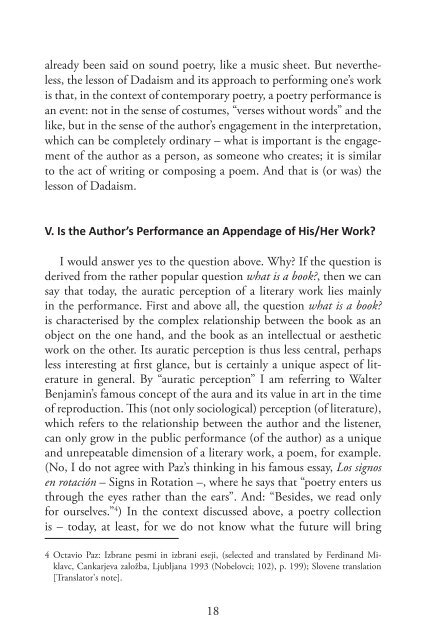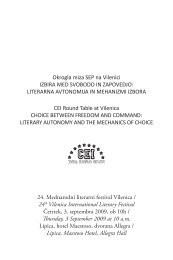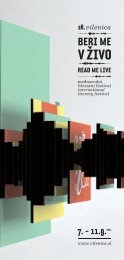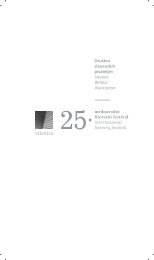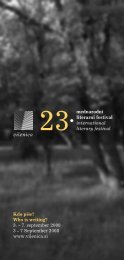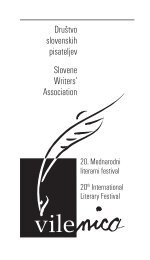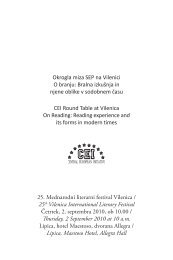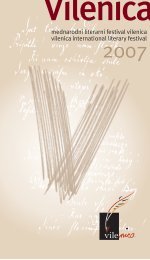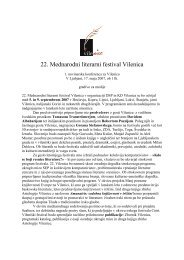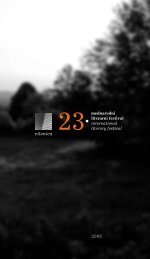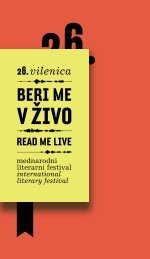Publikacija SEP 2011 - Vilenica
Publikacija SEP 2011 - Vilenica
Publikacija SEP 2011 - Vilenica
Create successful ePaper yourself
Turn your PDF publications into a flip-book with our unique Google optimized e-Paper software.
already been said on sound poetry, like a music sheet. But nevertheless,<br />
the lesson of Dadaism and its approach to performing one’s work<br />
is that, in the context of contemporary poetry, a poetry performance is<br />
an event: not in the sense of costumes, “verses without words” and the<br />
like, but in the sense of the author’s engagement in the interpretation,<br />
which can be completely ordinary – what is important is the engagement<br />
of the author as a person, as someone who creates; it is similar<br />
to the act of writing or composing a poem. And that is (or was) the<br />
lesson of Dadaism.<br />
V. Is the Author’s Performance an Appendage of His/Her Work<br />
I would answer yes to the question above. Why If the question is<br />
derived from the rather popular question what is a book, then we can<br />
say that today, the auratic perception of a literary work lies mainly<br />
in the performance. First and above all, the question what is a book<br />
is characterised by the complex relationship between the book as an<br />
object on the one hand, and the book as an intellectual or aesthetic<br />
work on the other. Its auratic perception is thus less central, perhaps<br />
less interesting at first glance, but is certainly a unique aspect of literature<br />
in general. By “auratic perception” I am referring to Walter<br />
Benjamin’s famous concept of the aura and its value in art in the time<br />
of reproduction. This (not only sociological) perception (of literature),<br />
which refers to the relationship between the author and the listener,<br />
can only grow in the public performance (of the author) as a unique<br />
and unrepeatable dimension of a literary work, a poem, for example.<br />
(No, I do not agree with Paz’s thinking in his famous essay, Los signos<br />
en rotación – Signs in Rotation –, where he says that “poetry enters us<br />
through the eyes rather than the ears”. And: “Besides, we read only<br />
for ourselves.” 4 ) In the context discussed above, a poetry collection<br />
is – today, at least, for we do not know what the future will bring<br />
4 Octavio Paz: Izbrane pesmi in izbrani eseji, (selected and translated by Ferdinand Miklavc,<br />
Cankarjeva založba, Ljubljana 1993 (Nobelovci; 102), p. 199); Slovene translation<br />
[Translator's note].<br />
18


